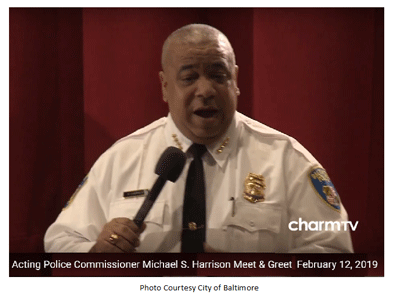The recent hoopla and sometimes disdain, heaped on Baltimore Mayor Catherine Pugh, the City Council and the Board of Estimates regarding the eyebrow-raising compensation package extended to the presumptive new commissioner of the Baltimore City Police Department, Michael Harrison, at first glance, elicits an understandable W-T-H reaction.
In a city of nearly 612,000 persons whose poverty rate is roughly 25 percent, which translates to 80,000 households subsisting on an income of less than $21.000 per year, the new police commissioner’s contract, which will pay him approximately $1.5 million over five-years, and nearly $300,000 if his offer of employment is rescinded before he assumes the office, it’s not surprising that the visceral reaction of citizens at-large might be one of shock and outrage.
Is it possible City Hall could have brokered a better deal for the public’s money? Perhaps. However, after an examination of the national talent pool for big city police commissioners demonstrates that Harrison’s pay package is near but not at the top. Relative to Baltimore’s size and the scope of crime here, the offer Mayor Pugh has extended to Harrison is competitive but this does not completely let the mayor off the hook for her decision.
Whether Catherine Pugh’s choice of Michael Harrison and his lucrative pay will ultimately be seen as a folly or a strategically wise leadership decision, will become obvious based on Harrison ‘s effectiveness.
Mayor Pugh’s motivation is clear. She is genuinely alarmed at the depth and scope of Baltimore’s crime and murder rates and has recruited a demonstrated law enforcement professional to address the situation on her constituents’ behalf.
Her heart is clearly in the right place. However, as the fourth commissioner to serve under Mayor Pugh in her 26 months in office (including acting commissioner Gary Tuggle) it remains to be seen whether the mayor’s leadership and management efficacy, in tandem with Harrison’s policing acumen, will achieve the desired result— drastically reducing crime, violence and murder in Baltimore City.
At the end of the day, the responsibility to police Baltimore is not the purview of the mayor or police commissioner alone. In a democracy, we the people must ultimately shoulder that responsibility. Pugh and Harrison are on our, the public’s payroll.
Baltimore’s crime and violence condition is in direct correlation to a terribly economically depressed city, with a large population of drug-addicted citizens, and a host of chronic social conditions in the areas of education, illiteracy, health, housing and jobs— fertile ground for a protracted crime epidemic.
It is left to those of us who are socially aware and engaged to not only set the agenda for the city— insisting where the government needs to target and channel precious resources for overall revitalization— it our moral and civic responsibility to protect our very substantial investment in the person hired to secure our safety and well-being by supporting him in his task and stacking the deck in favor of his success.
Our government exercises its authority with the consent of the governed. Mayor Pugh and Commissioner Harrison’s ultimate effectiveness to curb crime in Baltimore will be largely determined by the commitment of citizens to oversee and to vigilantly participate in municipal affairs. It’s largely up to Baltimore’s taxpayers and voters whether we get the bang for our buck from Michael Harrison as our new police commissioner.
